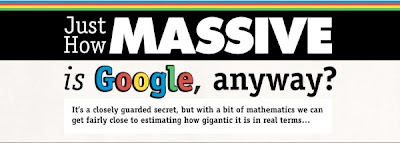A spectre is haunting Mountain View. No, not bed bugs: bit rot. Google is in serious decline.
I don’t see how they can deny it. They have famously always been a data-driven organization, and the data is compelling. Business Insider’s list of the 15 biggest tech flops of 2010 cited no fewer than four from Google: Buzz, Wave, Google TV, and the Nexus One. Bizarre errors have erupted in Google Maps. Many of its best engineers are leaving. Influential luminaries like Vivek Wadhwa, Jeff Atwood, Marco Arment and Paul Kedrosky (way ahead of the curve) say their core search service is much degraded from its glory years, and the numbers bear this out; after years of unassailable dominance, Google’s search-market share is diminishing—it dropped an eyebrow-raising 1.2% just from October to November—while Microsoft’s Bing, whose UI Google tried and embarrassingly failed to copy earlier this year, is on the rise.
Even their money fount, AdWords, is problematic. An illustrative anecdote: I recently experimented with a $100 free certificate for my own pet app, and found my ad got stuck “In Review” indefinitely. According to users on AdWords’ discussion boards, this is common, and the only way to fix it is to file a help request. I did, and the problem was soon repaired—but what happened to the speedy algorithmic solutions for which Google is famous?
The general tone on the AdWords forums is exactly like that on those devoted to the other Google service I use a lot, App Engine: users on both frequently complain about the way Google neglects and/or outright ignores them. I like App Engine a lot, but it’s prone to sporadic bursts of inexplicable behaviour, and some developers are abandoning it because of Google’s perceived reluctance or inability to fix its bugs and quirks. Another example: a bug in Android’s default SMS app which sent text messages to incorrect recipients festered for six months until a spate of high-profile coverage finally forced them to fix it. How can they neglect problems like that in their only big hit of the last five years?
Never mind don’t be evil—what happened to pay attention?
Once upon a time, Google was the coolest place for a techie to work. Not any more. While I can’t quantify this, I’m confident that most engineers will agree: somehow, over the last 18 months, their aura has faded and their halo has fallen. Once their arrogance was intimidating and awesome. Now it just seems clueless.
It’s not like they’re Yahoo!, halfway past the point of no return. Google is still a giant money machine full of brilliant engineers. Google Voice could be huge. If the rumors of their super-secret augmented-reality app are true, they have another hit in the wings. Even their self-driving cars make strategic sense to me. Still, the trajectory is clear; they’re in decline. They seem to have finally stopped believing their own press releases and realized that they have a problem—but is it too late? Has Google grown too big to succeed? I fear that the answer is yes.
Snips :








